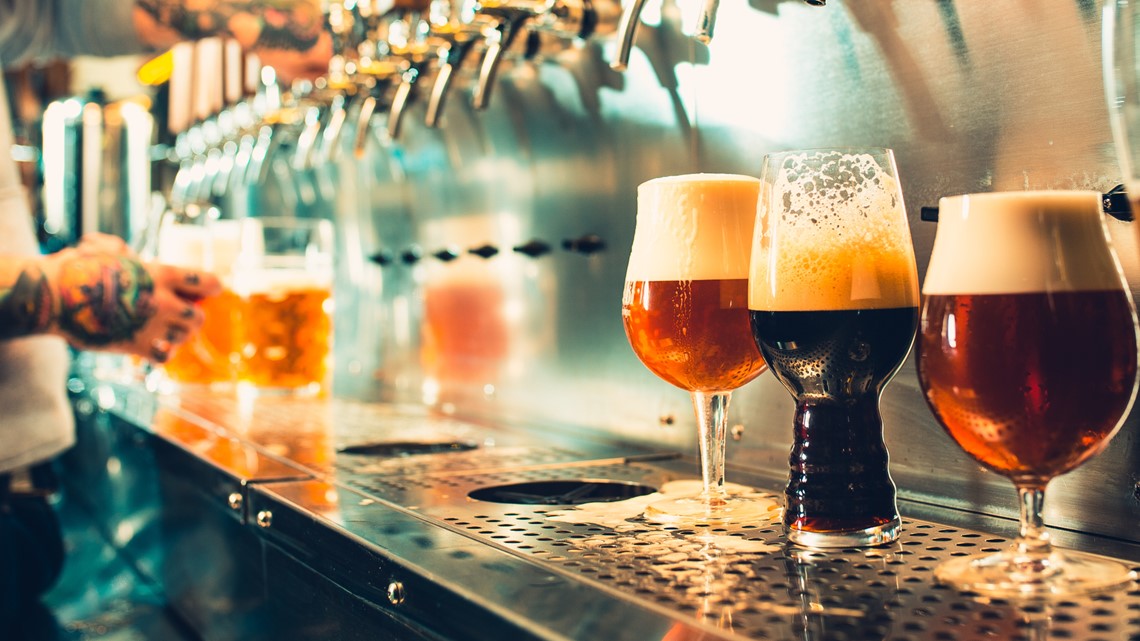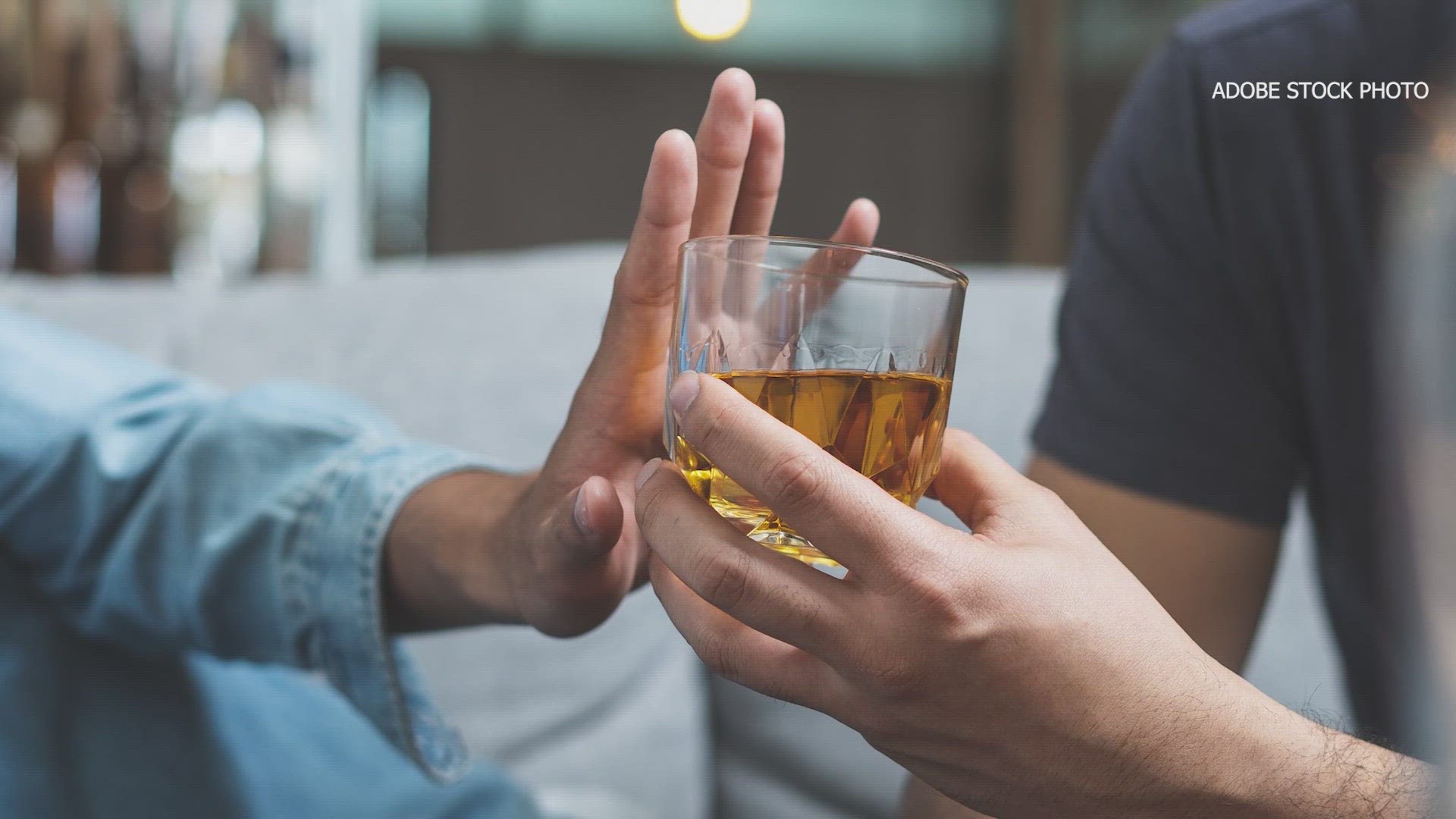INDIANAPOLIS — For some people whose holiday season felt like one endless overindulgence, who saw espresso martinis at Bottleworks Hotel and craft IPAs handed out from the bottom of their drunk uncles’ Yeti cooler swapped out in a seemingly constant rotation, the start of a new year can mark a blessed departure from the booze and a serious reconsideration of their relationship with alcohol.
Could never be me.
So, farewell eggnog, and hello Dry January, the monthlong challenge meant to give our bodies a much-needed break from alcohol in all forms. Experts maintain people wanting to sober up by New Year (again, right there with you, friends) after a particularly debaucherous holiday season predates the term Dry January, a term that denotes a collective effort to remain sober throughout the first month of the year.
Dry January first began as a public health initiative launched in 2012 by the UK based charity Alcohol Change UK, but has since blossomed to a challenge that around 15% to 19% of people have participated in throughout recent years.
I’m far from the only one who got a bit too schnockered these last few weeks: New Year’s Eve itself is one of the booziest holidays, with an estimated 40% of women binge drinking on that day.
"We tend to see an increase in drinking during the holidays because people are celebrating. These are periods also of high emotions. Pleasant emotions, but also sad emotions because people who used to be there are not there anymore. That tends to be a trigger for drinking and, sometimes, excessively," said Dr. George Koob, who is the director of the National Institute on Alcohol Abuse and Alcoholism.
Quitting alcohol "cold turkey" could give us some major benefits fairly immediately, and some research backs that up. A 2014 study conducted by the University of Sussex found 72% of 800 people who participated in Dry January had successfully reduced their drinking in following months. Those people also experienced a range of physical and emotional benefits, with 71% reporting better sleep and 67% saying they had more energy. Eighty percent of those participants said they felt more alert, and more than half reported weight loss and better skin.
There are some specific things we can do to ensure a sober, successful start to the year, even if we don't remain completely sober throughout. "Success" in sobriety is highly personal and dependent on the person: one person may want to cut back from a bottle of wine to two glasses a night, while another cuts out alcohol completely.
Decreasing alcohol intake in any capacity, doctors reiterate, is likely to yield great health benefits. The World Health Organization declared in early 2023 that no amount of alcohol is safe for a person's health, while the Centers for Disease Control and Prevention maintained their recommendation that, if people choose to drink, men consume two drinks or less per day and women have one daily drink or less.
Only we know which path is better for our overall goals and health.
“There’s the Dry January folks and then the Damp January folks. Either abstinence, or what we call harm reduction or moderation management. And motivations vary, but I think one of the most common ones is health concerns. I know a ton of people get physicals this year, and one of the red flags that can come up is elevated liver enzymes,” said Dr. Lauren Grawert, who is the chief medical officer at Aware Recovery Care, an organization based throughout the country that offers rehabilitation for people struggling with addiction.
Dry January can also be a solid way for people already experiencing symptoms of mild alcohol dependency to kick the habit. Many casual drinkers may not recognize in the revelry of the season that their symptoms have slowly morphed from a habit into a problem. Subtle indicators, like an uptick in anxiety or poor sleep, aren’t always just symptoms of a bad hangover: they can be part of a growing alcohol dependency.
"You can be anywhere in that range. Alcohol use disorder is a spectrum disorder, it's considered mild, moderate and severe. Moderate and severe would be what we used to call 'alcohol dependent.' So, you can be anywhere in that range, and be a moderate drinker, and if you start sleeping better? Seeing less stomach irritation? Better interaction with your relationships? It's your body telling you something. And you should listen to your body," Koob said.
Health and wellness experts also cautioned it’s important for us to be honest in assessing if we have a moderate alcohol dependency, and get enhanced support from a professional before embarking on a sober challenge if we think we do.


There are about 8 million alcohol-dependent people in the U.S. alone, according to the National Institute on Alcohol Abuse and Alcoholism, and about 500,000 episodes of withdrawal are severe enough to require professional treatment every year. Alcohol is one of the most dangerous drugs to withdraw from, with the death rate from withdrawal as high as 1 in 25, one 2016 study found.
"It is not a trivial condition. It can be dangerous to just abruptly stop drinking. A moderate-severe alcohol use disorder person, who meets 4 to 6 of the criteria for an alcohol use disorder, and there are 11 of them, really needs medical help if you're gonna stop abruptly and make sure that you don't go into withdrawal," Koob said.
Experiencing physical withdrawal symptoms like sweating, tremors, vomiting or hallucinations at the beginning of a Dry January journey could indicate it’s time for a professional to step in to provide more robust support.
Grawert said many Dry January participants have found success monitoring their own alcohol intake independently throughout the month, but it’s always a good idea to loop others into your sober plans.
“Finding those people who you can trust, who will help support and keep you accountable, it’s much easier to go longer stretches,” Grawert said.
Keeping alcohol out of the house can also be key to maintaining sobriety throughout this month, Grawert said, but abstaining from it completely doesn’t mean you have to forego the ritual of a beverage or the social aspects of them either.
Health and wellness experts have found people trying to stay sober found a lot of success using the replacement strategy, or swapping alcoholic drinks with non-alcoholic ones at times when they would be drinking.
"I recommend soda water, especially for people that are beer drinkers, because it's got that carbonation," Grawert said. She also recommended CBD or alternative alcohol brands like Recess as healthy alternatives during Dry January.
In the greater Indianapolis area, there are increasingly more options for people wanting to go alcohol-free and go out. Memento Zero Proof Lounge in Fishers is Indiana's first alcohol-free cocktail and coffee bar and provides "fully-zero" temptation drinks for people who want to forgo alcohol. They even hosted a New Year's party over the weekend, all alcohol-free.
"We've met a ton of people that have done this on their own, or gone out and found their own sponsors," owner Max Gavin said. "I think the biggest message for people trying to quit would just be, there's a lot of different ways that you can go about this. And if something didn't work for you in the past, there's definitely other options you can try."

